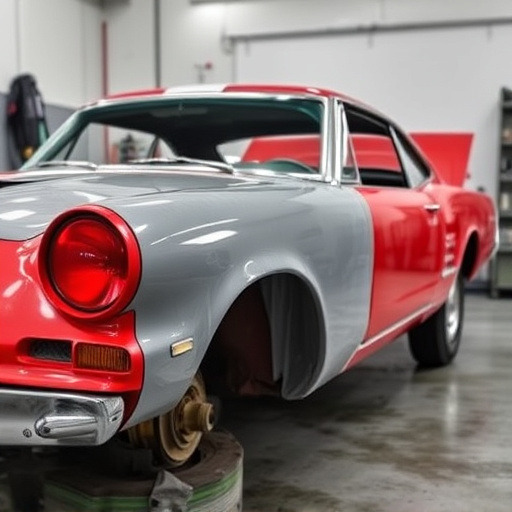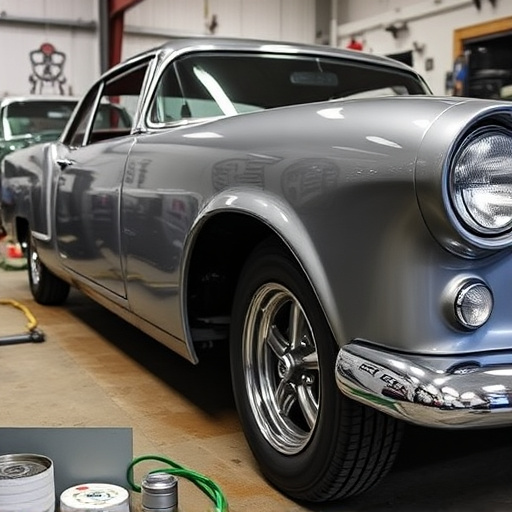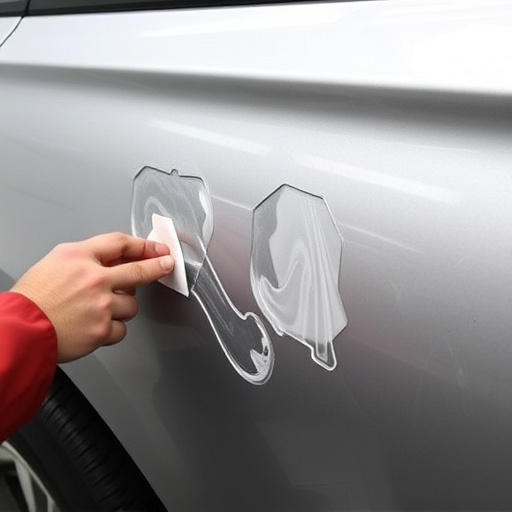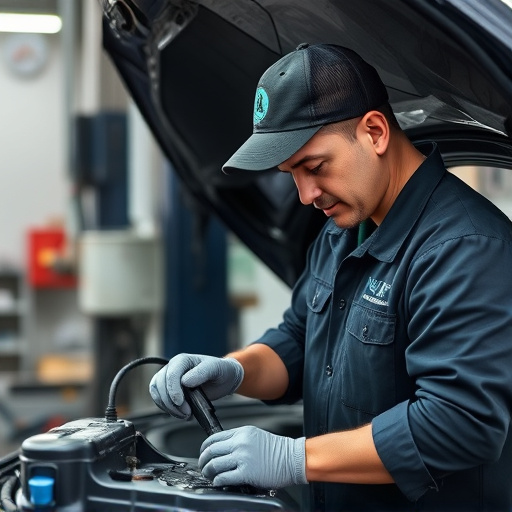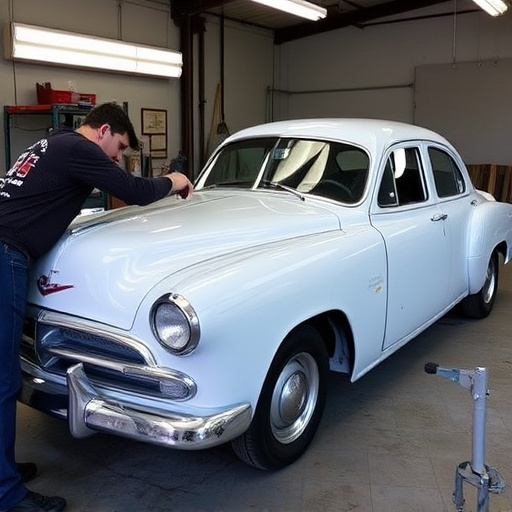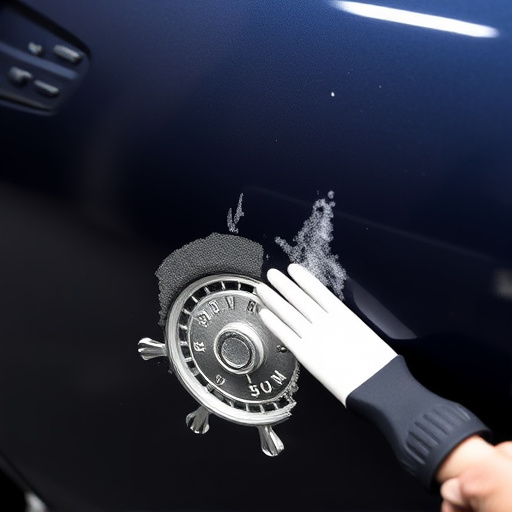Electrical system crash repair is a critical step ensuring vehicle safety and reliability after an accident. Skilled professionals meticulously inspect and fix components like airbags, ABS, ESC using advanced tools and high-quality parts to preserve performance and value. Vehicle reliability ratings are influenced by the quality of crash repairs, with organizations evaluating post-repair performance to maintain resale value.
Electrical system crash repair is a critical process that can significantly impact vehicle reliability ratings. When a vehicle sustains damage, proper restoration of its intricate electrical systems is essential for safety and performance. This article explores the multifaceted aspects of electrical system crash repair, focusing on the process, its influence on key components, and its profound effects on resale value through various rating systems. Understanding these dynamics is crucial for both automotive professionals and consumers.
- Understanding Electrical System Crash Repair Process
- Impact on Vehicle Reliability: Key Components
- Rating Systems and Their Influence on Resale Value
Understanding Electrical System Crash Repair Process
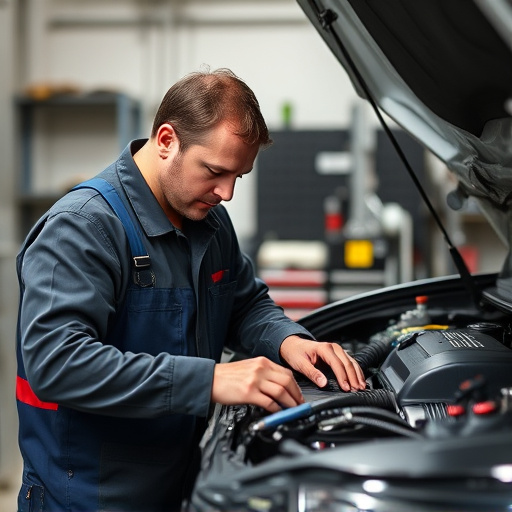
The electrical system crash repair process involves a meticulous approach to ensure vehicle safety and reliability post-accident. It begins with a thorough inspection of the car’s electronics, including sensors, wiring harnesses, and control units. Skilled technicians use advanced diagnostic tools to identify any damage or malfunction caused by the impact. The repair may range from replacing faulty components like airbags or seatbelts to fixing intricate systems such as anti-lock braking (ABS) or electronic stability control (ESC).
This meticulous crash repair process is crucial for maintaining the integrity of the car’s overall performance and safety features. A well-executed electrical system repair in a car bodywork shop ensures that every component functions optimally, directly impacting the vehicle’s reliability ratings. In fact, many modern vehicles rely heavily on sophisticated electronic systems, making accurate crash repair techniques essential to keep up with evolving automotive technology.
Impact on Vehicle Reliability: Key Components
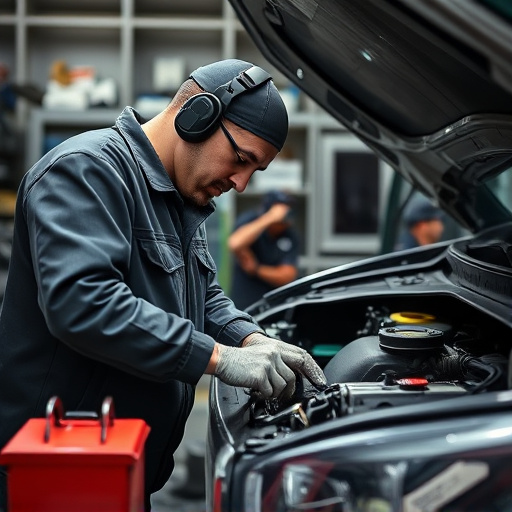
The state of a vehicle’s electrical system plays a pivotal role in determining its overall reliability and longevity. When a crash occurs, especially a severe one, the intricate web of electrical components can be significantly affected. Electrical system crash repair is therefore not just about fixing external damage; it involves meticulous attention to key components that are often overlooked. These include the battery, alternator, starter motor, and wiring harness, all of which are vital for the vehicle’s smooth operation.
Damaged or improperly repaired electrical systems can lead to a cascade of issues post-crash. Malfunctions in these key areas may manifest as unexpected power failures, erratic engine behavior, or even complete vehicle shutdowns. Consequently, proper evaluation and repair of the electrical system by seasoned auto body repair professionals are essential steps in ensuring that a vehicle not only drives safely but also maintains its reliability ratings. Skilled technicians employ advanced techniques and high-quality components to restore these critical systems to their optimal state, thereby preserving the vehicle’s performance and value.
Rating Systems and Their Influence on Resale Value
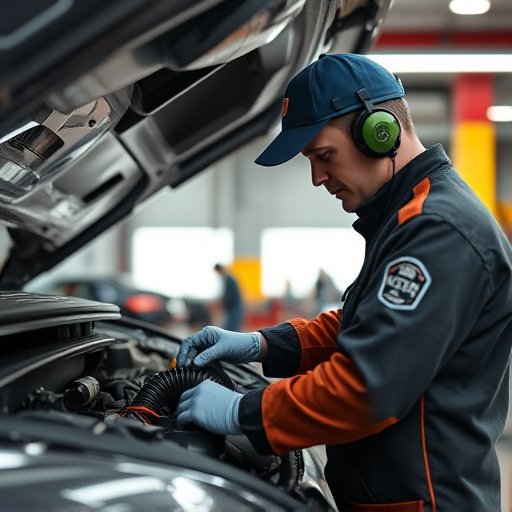
Vehicle reliability ratings are pivotal indicators of a car’s longevity and performance over time. These ratings are often influenced by various factors, one of which is the quality of crash repair work, specifically focusing on the electrical system. Rating systems like J.D. Power and Consumer Reports meticulously evaluate vehicles based on their ability to maintain performance after repairs, ensuring that any fixes, including electrical system crash repair, don’t compromise future reliability.
A well-executed car paint repair or scratch repair may restore a vehicle’s aesthetics, but it’s the underlying structural and electrical integrity that significantly impacts resale value. Thorough vehicle repair services that account for potential systemic issues can contribute to higher reliability ratings, making vehicles more attractive to prospective buyers in the secondary market.
Electrical system crash repair plays a pivotal role in ensuring vehicle safety and reliability. By understanding the intricate process and its impact on key components, we can grasp how it influences resale value through standardized rating systems. These ratings are crucial for consumers seeking dependable vehicles, underscoring the significance of proper electrical system crash repair in the automotive industry.


